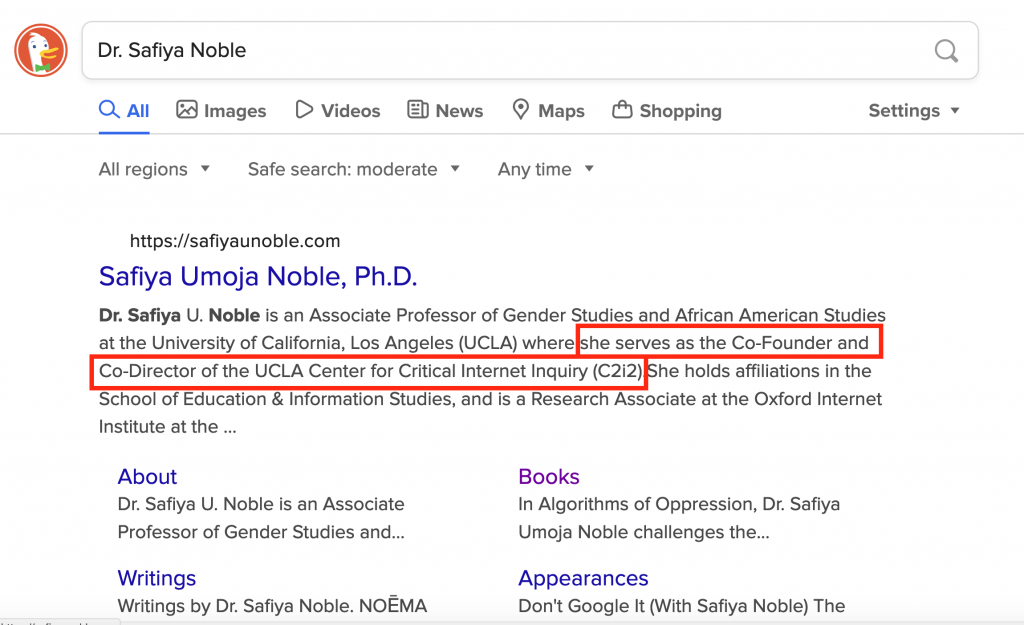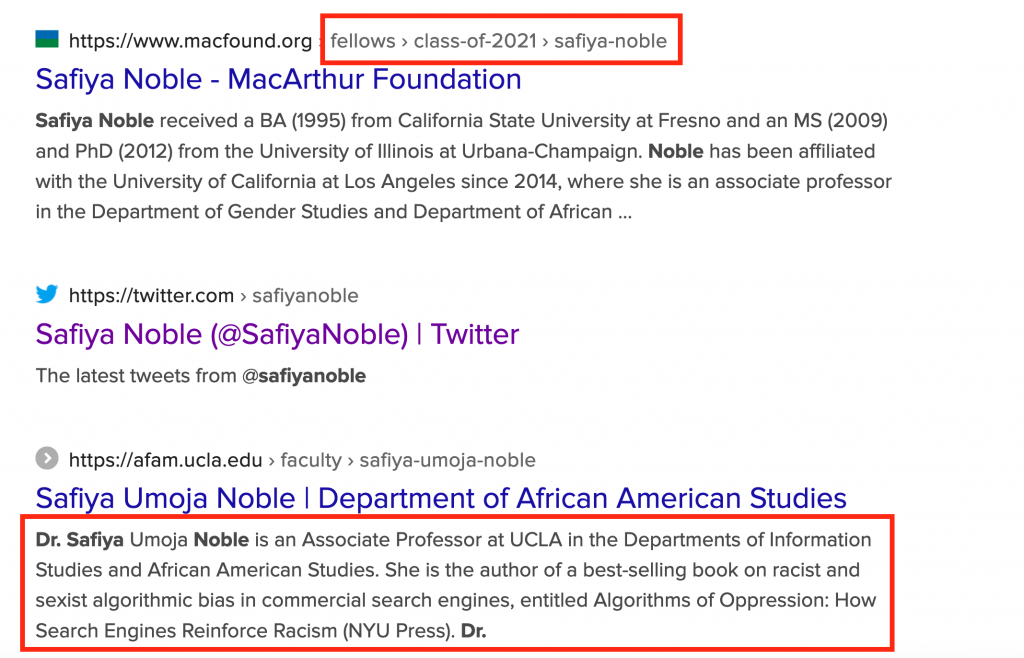5 Source Authority
Let’s put foundations, value judgements, and trust into a model for assessing a source’s authority. When assessing a source’s authority, you are not determining if a source is categorically “good” or “bad”, you are determining to what degree the source is an authority on a topic. Someone researching cancer treatments would not go to NASA‘s website, they’d use the Mayo Clinic. NASA’s expertise and authority is in astrophysics, aeronautics, and engineering. The Mayo Clinic is an academic medical center focused on health care, education, and research.
When you are confident in a source’s authority on a topic, that fosters trust in the source creator(s) and the authority they have on a given topic. Once you trust the source creator(s) to be an authority on a topic, you can follow the content and the creator(s) in their area of expertise. This leads to a thread of authoritative sources on a given topic.
Source Authority Check Example: After watching Dr. Safiya Noble’s lecture on algorithm’s of oppression in the “Foundations and Value Judgement” chapter, move out to a search engine and search her name. The first hit is her own personal website that supports the claims she makes in the video.

More importantly, the MacArthur Foundation lists her as a fellow, and below that result is evidence that UCLA supports the credentials she claimed in the video and on her website.
 Next, move out to YouTube. Search Safiya Noble’s name to see if she published other lectures on the topic, she has. Return to the search engine to search “Dr. Safiya Noble books”. Search results demonstrate she published more than one book, which means a major publisher reviewed and edited her work before endorsing its publication. Return to the UCLA link to read the university endorsed bio. The books in the previous search appear as well as her role as an Associate Editor for the Journal of Critical Library and Information Studies, and is the co-editor of the Commentary & Criticism section of the Journal of Feminist Media Studies.
Next, move out to YouTube. Search Safiya Noble’s name to see if she published other lectures on the topic, she has. Return to the search engine to search “Dr. Safiya Noble books”. Search results demonstrate she published more than one book, which means a major publisher reviewed and edited her work before endorsing its publication. Return to the UCLA link to read the university endorsed bio. The books in the previous search appear as well as her role as an Associate Editor for the Journal of Critical Library and Information Studies, and is the co-editor of the Commentary & Criticism section of the Journal of Feminist Media Studies.
Based on this source authority check of Dr. Safiya Noble, its reasonable to say that anything written by Dr. Safiya Noble on algorithms used by the internet, gender, and social justice in digital spaces are credible, authoritative sources. Additionally, any citations in her books, articles, or lectures are probably to reliable credible sources. By doing research around one creator, you find more they’ve written on a topic which bolsters their role as an authority on the topic, and it also leads you to additional resources.
NEXT AND VERY IMPORTANTLY, ask the following question: Do others support her claims and point of view? Is there a consensus among others that can corroborate what Dr. Noble is claiming to be true? You can check this by searching the topics Dr. Noble discusses or claims expertise on. If you search “social justice AND digital spaces”, are there other sources that take a similar approach to the topic? If you find that Dr. Noble is the only person talking about this topic, either she is on the cutting edge of research, or maybe her claims should be investigated a bit deeper to verify the content.
To support your own source authority research, follow the prompts below and fill in the text boxes using your own sources or content you discovered in your research. The prompts and the content you input into the text boxes will guide you through the process of determining the authority of a source and may provide additional resources through your research. You will be able to download your work at the end of the activity.
